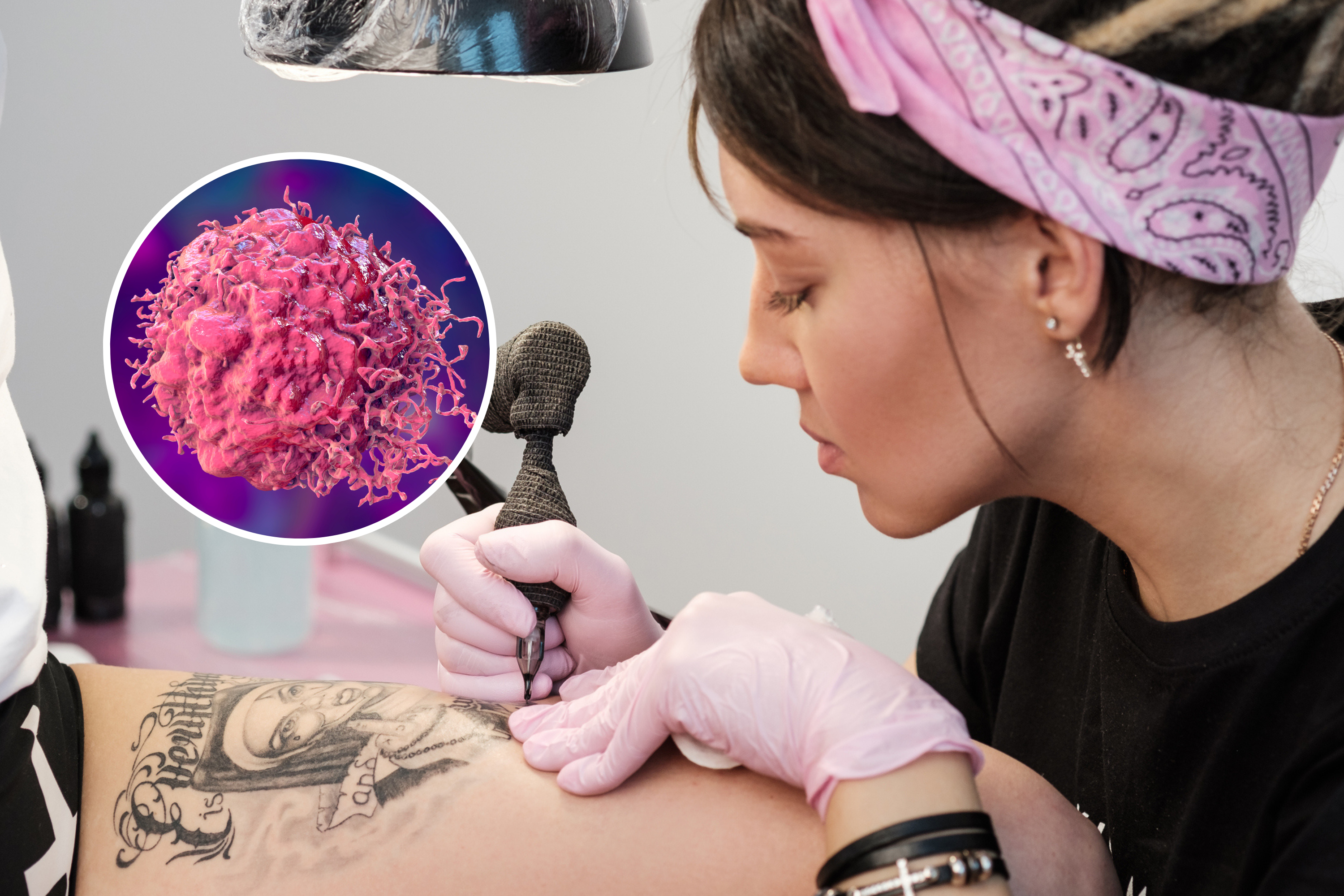Scientists have warned of an urgent need for more research into the long-term health impacts of tattoos after new research found they may increase the risk of lymphoma cancer.
Roughly one third of Americans have at least one tattoo, 2023 Pew Research Center surveys show. However, very little is known about the long-term effects on our health of getting inked.
In a new study at Lund University in Sweden, researchers analyzed a group of 11,905 participants to explore whether tattoos could impact our risk of developing lymphoma, a type of blood cancer that starts in white blood cells.

Mikhail Spaskov/Getty
“We have identified people diagnosed with lymphoma via population registers,” Christel Nielsen, who led the study, said in a statement. “These individuals were then matched with a control group of the same sex and age, but without lymphoma. The study participants answered a questionnaire about lifestyle factors to determine whether they were tattooed or not.
“After taking into account other relevant factors, such as smoking and age, we found that the risk of developing lymphoma was 21 percent higher among those who were tattooed.”
The exact mechanisms behind this association are still a mystery, but Nielsen said it was likely something to do with how our bodies respond to the tattoo ink. “We already know that when the tattoo ink is injected into the skin, the body interprets this as something foreign that should not be there and the immune system is activated,” Nielsen said. “A large part of the ink is transported away from the skin to the lymph nodes where it is deposited.”
Because of this, the team had expected those with larger tattoos to be at a greater risk of lymphoma than those with smaller ones, because there is more ink in their bodies to respond to. However, the size did not seem to matter.
“We do not yet know why this was the case,” Nielsen said. “One can only speculate that a tattoo, regardless of size, triggers a low-grade inflammation in the body, which in turn can trigger cancer. The picture is thus more complex than we initially thought.”
These findings are purely associative, and more work needs to be done to verify them and prove that the tattoo ink is actually causing the increased risk of lymphoma. The team also hope to explore whether tattoos can increase our risk of other cancers and inflammatory diseases.
“People will likely want to continue to express their identity through tattoos, and therefore it is very important that we as a society can make sure that it is safe,” Nielsen said. “For the individual, it is good to know that tattoos can affect your health, and that you should turn to your health care provider if you experience symptoms that you believe could be related to your tattoo.”
The full study can be found in the journal eClinicalMedicine.
Is there a health problem that’s worrying you? Do you have a question about tattoos? Let us know via [email protected]. We can ask experts for advice, and your story could be featured on Newsweek.
Uncommon Knowledge
Newsweek is committed to challenging conventional wisdom and finding connections in the search for common ground.
Newsweek is committed to challenging conventional wisdom and finding connections in the search for common ground.

Dr. Debi Johnson is a medical expert and health journalist dedicated to promoting well-being. With a background in medicine, she offers evidence-based insights into health trends and wellness practices. Beyond her reporting, Dr. Debi enjoys hiking, yoga, and empowering others to lead healthier lives.



:max_bytes(150000):strip_icc():focal(781x219:783x221)/olivia-culpo-christian-mccaffrey-oscars-032722_3068-211b73e2dc4840928db90a8cf54ac29f.jpg)



